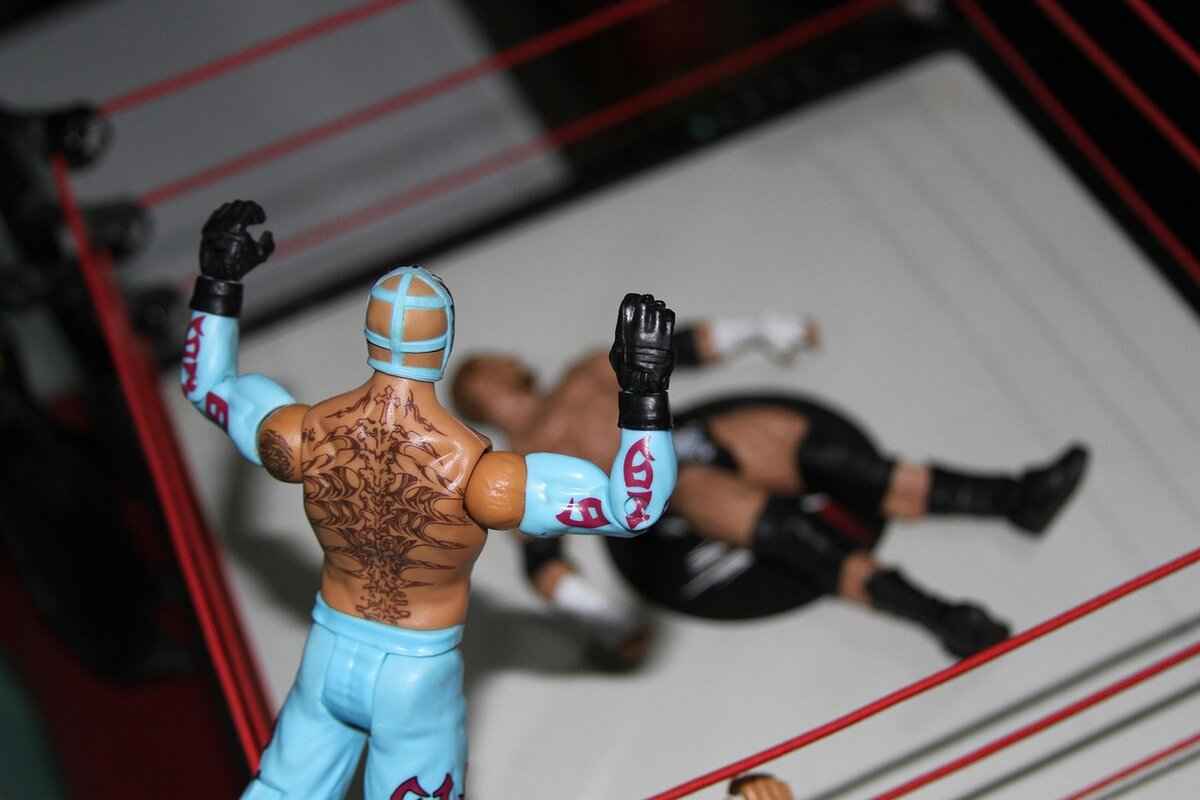This article delves into the recent changes WWE made to match cards following Smackdown in Orlando, discussing the implications, fan reactions, and potential reasons behind these adjustments.
What Matches Were Altered After Smackdown?
Following the Smackdown event in Orlando, WWE made several noteworthy adjustments to the match card. Originally, fans were excited to see a showdown between top-tier superstars, but the final lineup saw some surprising alterations. Key matches that were expected to be headliners were replaced or modified, creating a buzz among the audience. For instance, a much-anticipated title match was substituted with a tag team bout that left many fans scratching their heads. This shift not only changed the dynamics of the event but also impacted the storyline arcs that were being developed.
Reasons Behind the Match Changes
Understanding the rationale behind WWE’s decision to alter the matches provides valuable context for fans. Several factors contribute to these last-minute changes, including storyline development, wrestler availability, and audience feedback. WWE often aims to keep the narrative fresh and engaging, which can lead to unexpected matchups designed to surprise and captivate the audience. Additionally, if a particular storyline isn’t resonating with fans, WWE may pivot quickly to maintain interest and excitement.
Fan Reactions to the Changes
Fan reactions to these alterations can be quite telling. Social media erupted with mixed sentiments, showcasing a blend of disappointment and intrigue. While some fans expressed frustration over the changes, others welcomed the unpredictability that WWE is known for. Platforms like Twitter and Reddit became battlegrounds for opinions, with hashtags trending as fans voiced their thoughts. This immediate feedback loop is crucial for WWE as it gauges audience sentiment and adjusts its programming accordingly.
Impact on Storylines
The alteration of matches can have significant implications for ongoing storylines. When matches are changed, it can alter the trajectory of character development and rivalries. For instance, a sudden shift in a match card may lead to new alliances or feuds, impacting how storylines unfold in subsequent episodes. The ripple effect of these changes can be felt across various segments of WWE programming, creating new opportunities for storytelling and character exploration.
Comparing Original and Final Match Cards
| Original Match Card | Final Match Card |
|---|---|
| Champion vs. Challenger | Tag Team Match |
| High-Stakes Singles Match | Special Guest Referee Match |
| Rivalry Blowoff | Surprise Entrant Match |
This comparison illustrates the extent of the changes and raises questions about WWE’s strategic decision-making.
WWE’s History of Last-Minute Changes
WWE has a storied history of making last-minute changes to match cards. From unexpected returns to surprise title changes, these alterations have become a hallmark of WWE’s approach to live events. Historical examples include major pay-per-view events where matches were changed mere hours before the show, often to enhance viewer engagement or respond to unforeseen circumstances. This practice reflects WWE’s adaptability in a fast-paced entertainment environment.
What This Means for Future Events
The implications of these changes can extend beyond a single event. As WWE navigates its storytelling landscape, the adjustments made to the match card may influence future shows and pay-per-views. By observing audience reactions and engagement levels, WWE can fine-tune its approach to match-making and storyline development, ultimately aiming to keep its fanbase invested and excited.
Insights from Wrestling Analysts
Expert opinions provide valuable insights into WWE’s decision-making process. Wrestling analysts often highlight the importance of audience engagement and the need for WWE to remain flexible in its programming. Analysts suggest that these changes are not merely reactive but are part of a broader strategy to maintain viewer interest and adapt to the evolving landscape of professional wrestling.
How Changes Affect Ticket Sales
Changes in match cards can significantly influence ticket sales and attendance. Fans often purchase tickets based on specific matchups, and when those are altered, it can lead to dissatisfaction or even cancellations. Analyzing past events shows a correlation between match card stability and ticket sales, emphasizing the need for WWE to carefully consider its lineup to maximize revenue and maintain fan loyalty.
WWE’s Approach to Fan Engagement
WWE’s relationship with its fans is crucial to its success. Changes to matches can impact fan engagement and loyalty. By actively listening to audience feedback and adapting its programming, WWE aims to foster a sense of community and connection. Engaging fans through social media and interactive platforms allows WWE to gauge sentiment and make informed decisions about future matchups and storylines.
Potential Future Storylines Emerging from Changes
The adjustments made to the match card can lead to new storylines. For instance, unexpected outcomes from altered matches can set the stage for future rivalries or alliances. Speculating on potential developments resulting from these changes can be exciting for fans as they anticipate how storylines will evolve in the coming weeks.
In wrapping up, the changes to WWE’s match card following Smackdown in Orlando highlight the organization’s dynamic approach to storytelling and audience engagement. By understanding the implications of these alterations, fans can gain a deeper appreciation for the art of professional wrestling.

What Matches Were Altered After Smackdown?
In the world of professional wrestling, surprises are a staple of the entertainment experience. Following the recent Smackdown event in Orlando, fans were left buzzing with excitement and confusion as several matches underwent significant changes. Understanding these alterations is crucial for fans who wish to stay informed about the evolving storyline dynamics and matchups.
Initially, the match card featured a lineup that included anticipated bouts such as Roman Reigns vs. Seth Rollins and Becky Lynch vs. Charlotte Flair. However, as the event approached, WWE management decided to modify the lineup, resulting in a final match card that surprised many.
- Roman Reigns vs. Seth Rollins was replaced with a tag team match featuring Reigns teaming up with Jey Uso against Rollins and Kevin Owens. This shift not only changed the dynamics of the match but also added layers to the ongoing storylines, particularly concerning the Bloodline saga.
- Becky Lynch vs. Charlotte Flair was altered to a triple threat match, now including Sasha Banks. This decision was likely influenced by the need to elevate the stakes and provide fans with an unexpected twist.
These adjustments were not merely random; they reflect WWE’s strategy to maintain viewer engagement and build towards future events, such as WrestleMania. By changing the match formats, WWE aims to create more compelling narratives that resonate with the audience.
Moreover, the alterations sparked discussions across social media platforms, with fans expressing a mix of excitement and disappointment. Some fans appreciated the unpredictability, while others felt that the original matchups had more potential for storytelling.
Ultimately, understanding which matches were altered after Smackdown provides valuable insights into WWE’s creative process and the factors influencing match card decisions. This not only enhances the viewing experience but also allows fans to engage more deeply with the evolving storylines that define professional wrestling.

Reasons Behind the Match Changes
In the world of professional wrestling, the landscape can change rapidly, and WWE is no stranger to making last-minute adjustments to match cards. Understanding why WWE decided to alter the matches provides crucial context for fans and helps them engage with the product on a deeper level. This section will analyze various factors, including storyline development and audience feedback, that drive these decisions.
One primary reason for altering matches is the evolution of storylines. WWE consistently seeks to create compelling narratives that resonate with its audience. Sometimes, this requires a shift in matchups to better align with ongoing story arcs or to build anticipation for future events. For instance, if a particular storyline garners unexpected popularity, WWE may adjust the match card to capitalize on that momentum, ensuring that fans remain invested in the characters and their journeys.
Another significant factor is audience feedback. WWE closely monitors fan reactions during live events and through social media channels. If a segment or character receives overwhelming support or criticism, the company may decide to make changes to address these sentiments. This responsiveness to fan engagement is vital for maintaining a loyal audience base. For example, if a specific wrestler is generating buzz, WWE might alter the match card to feature that wrestler more prominently, thereby enhancing viewer satisfaction.
Additionally, logistical considerations often play a role in match alterations. Injuries or scheduling conflicts can lead to unexpected changes, necessitating quick decisions to maintain the integrity of the show. WWE’s ability to adapt under pressure speaks to its professionalism and commitment to delivering high-quality entertainment.
Moreover, the company aims to create a balanced card that appeals to various demographics. By altering matches, WWE can ensure that the lineup includes a mix of high-stakes bouts, fan-favorite wrestlers, and emerging talent, catering to a broad audience. This strategic approach not only enhances the viewing experience but also helps in nurturing future stars.
In summary, the reasons behind WWE’s match changes are multifaceted, encompassing storyline development, audience feedback, logistical challenges, and a commitment to diverse programming. Understanding these factors enriches the fan experience, allowing viewers to appreciate the intricacies of WWE’s decision-making process.

Fan Reactions to the Changes
Fan reactions can be a significant indicator of WWE’s success or failure. In the fast-paced world of professional wrestling, the feedback from fans is not only a reflection of their preferences but also a crucial component in shaping WWE’s future direction. As the company continues to evolve, understanding the audience’s sentiment regarding match changes becomes essential.
Social media platforms like Twitter, Instagram, and Facebook have become the primary channels for fans to express their opinions. Following the recent match alterations after Smackdown in Orlando, a wave of reactions flooded these platforms. Many fans expressed disappointment over the unexpected changes, while others showed excitement for new matchups. The diversity of reactions highlights the passionate nature of the WWE fanbase.
In the wake of the changes, Twitter was abuzz with hashtags like #WWEChanges and #SmackdownReactions. Fans took to the platform to voice their thoughts, often sharing memes, GIFs, and emotional outbursts. A common theme in the responses was the anticipation that had built up around the original match cards, which many felt were now undermined by the last-minute adjustments. Some fans even went as far as to call for boycotts or expressed their frustration through humorous posts that captured their discontent.
Conversely, there were also segments of the fanbase that embraced the changes, seeing them as an opportunity for fresh storytelling and unexpected rivalries. This duality in fan reactions showcases the complex relationship WWE has with its audience. While some fans prefer predictable storylines, others thrive on surprise and spontaneity.
Moreover, platforms like Reddit have become hotspots for in-depth discussions about the implications of these changes. Fans engage in lengthy threads analyzing how the alterations might affect ongoing storylines and character development. This level of engagement indicates a high investment in the product, as fans dissect every detail and speculate on future outcomes.
WWE’s ability to listen and adapt to fan feedback is crucial. As the company navigates the intricate landscape of professional wrestling, understanding audience sentiment can lead to more informed decisions in match bookings and storylines. The challenge lies in balancing the expectations of a diverse fanbase, which often holds conflicting views on what constitutes an entertaining show.
In summary, fan reactions to match changes are not merely noise; they are a vital component of WWE’s ecosystem. By paying attention to social media responses and audience sentiment, WWE can better align its offerings with fan expectations, ultimately shaping the future of professional wrestling.

Impact on Storylines
The world of professional wrestling, particularly in WWE, is a dynamic landscape where storylines evolve rapidly. One of the most significant aspects of this evolution is the alteration of matches, which can create a ripple effect throughout ongoing narratives. In this section, we will delve into how changes in match cards can influence character arcs, future events, and overall storytelling in WWE.
When WWE modifies match outcomes or participants, it often leads to unexpected developments in character arcs. For instance, a wrestler who was initially positioned as a heel (villain) may find their trajectory altered, either through unexpected victories or losses that shift audience perceptions. This can lead to a redemption arc or a deeper dive into a character’s motivations, creating a more complex narrative. For example, if a fan-favorite wrestler loses a highly anticipated match due to an unexpected interference, it can set the stage for a revenge storyline that captivates the audience’s attention.
Moreover, these alterations can impact the relationships between wrestlers. A sudden change in match outcomes may lead to new alliances or rivalries, enhancing the drama and intrigue of ongoing storylines. For instance, if a wrestler unexpectedly turns on their partner during a match, it can lead to a feud that not only entertains fans but also provides a platform for character development. This kind of storytelling keeps audiences engaged, as they are always eager to see how relationships evolve and what consequences arise from these pivotal moments.
Additionally, match changes can influence future events within WWE. When a storyline is altered, it often necessitates adjustments to upcoming shows and pay-per-views. For example, if a championship match is changed at the last minute, the implications can extend to the title picture, affecting who competes for the championship in the future. This creates a domino effect, where each change leads to further adjustments, thereby enriching the overall narrative tapestry.
Fans also play a crucial role in how these changes are perceived. Their reactions can shape the direction of storylines, as WWE is known to respond to audience feedback. If a character receives a strong negative reaction, WWE may pivot and alter the storyline to either redeem or further vilify that character. This responsiveness not only keeps the content fresh but also fosters a sense of community engagement among fans, who feel their opinions matter in shaping the narrative.
In conclusion, the alteration of matches in WWE serves as a powerful tool for storytelling. It influences character arcs, fosters new rivalries, and can even reshape the trajectory of future events. By understanding the implications of these changes, fans gain insight into the intricate storytelling mechanics that make WWE a captivating form of entertainment. The continuous evolution of storylines ensures that audiences remain invested, eagerly anticipating the next twist in their favorite wrestlers’ journeys.

Comparing Original and Final Match Cards
In the world of professional wrestling, the match card is a crucial element that sets the stage for the entire event. When WWE makes adjustments to the match card, it can have significant implications for both the storyline and fan experience. Comparing the original match card with the final adjustments provides a clear picture of the changes made and their potential impact on the audience.
The original match card, as announced prior to the event, often reflects the company’s initial direction and creative vision. However, as the event approaches, various factors may lead to changes. These factors can range from injuries to storyline shifts, or even fan feedback. By examining the differences between the original and final match cards, we can gain insights into WWE’s decision-making process.
| Original Match Card | Final Match Card |
|---|---|
| Match 1: Champion vs. Challenger | Match 1: Champion vs. Tag Team |
| Match 2: Singles Match | Match 2: No Disqualification Match |
| Match 3: Women’s Title Match | Match 3: Women’s Tag Team Match |
As we can see from the table above, the changes made to the match card can be quite substantial. For instance, the alteration of a singles match to a no disqualification match can significantly elevate the stakes and excitement for the audience. This change not only creates a more thrilling atmosphere but also allows for more dramatic storytelling elements to unfold.
Moreover, switching from a champion versus challenger format to a tag team match can open up new avenues for character development and alliances. Fans often appreciate these unexpected turns, as they keep the narrative fresh and engaging. However, the changes can also lead to confusion among viewers who were looking forward to a specific matchup.
In addition to the immediate impact on the event, these adjustments can have long-term effects on ongoing storylines. For example, a last-minute change might hint at a new rivalry or set the stage for future feuds. This ripple effect can keep fans invested in the characters and storylines, ultimately enhancing their overall experience.
In conclusion, the process of comparing the original match card with the final adjustments reveals the dynamic nature of WWE programming. It illustrates how the company adapts to various challenges and opportunities, ensuring that the audience remains engaged and entertained. Understanding these changes is essential for fans who wish to grasp the larger narrative at play and appreciate the intricacies of professional wrestling.

WWE’s History of Last-Minute Changes
WWE has always been known for its dynamic storytelling and fast-paced action, but one of the most intriguing aspects of the promotion is its history of last-minute match changes. Fans have often found themselves surprised by unexpected alterations to match cards, which can dramatically shift the course of events in the wrestling universe. This article will delve into notable instances of these changes, their implications, and how they have shaped WWE’s storytelling landscape over the years.
Notable Instances of Last-Minute Changes
- WrestleMania 30: One of the most famous last-minute changes occurred when Daniel Bryan was added to the main event. Initially, the match was set to feature Randy Orton and Batista. Bryan’s inclusion not only changed the match dynamics but also resulted in one of the most memorable moments in WWE history.
- SummerSlam 2017: Originally, the card was set to feature a different opponent for Jinder Mahal, but due to unforeseen circumstances, John Cena was brought in as a surprise contender. This shift generated buzz and excitement among fans.
- Royal Rumble 2020: The original plans for the Royal Rumble match saw several superstars slated to participate, but injuries and creative decisions led to a last-minute reshuffle that kept fans on the edge of their seats.
Reasons Behind Last-Minute Changes
The reasons for these sudden alterations are multifaceted. WWE often responds to fan feedback and audience reactions to ensure that the product remains engaging. Additionally, injuries or personal issues with wrestlers can necessitate quick changes to maintain the integrity of the storyline. The creative team constantly evaluates the direction of story arcs and may decide that a last-minute change will yield a more compelling narrative.
Impact on Fan Engagement
Last-minute changes can have a significant impact on fan engagement. While some fans embrace the unpredictability, others may feel frustrated if they were looking forward to specific matchups. Social media often becomes a battleground for opinions, with fans voicing their excitement or disappointment. WWE monitors these reactions closely, as they can influence future booking decisions and overall audience sentiment.
Ripple Effects on Storylines
When matches are changed at the last minute, the ripple effects can influence ongoing storylines. For example, a sudden change in a title match can lead to new rivalries or unexpected alliances, altering the course of character development. WWE’s ability to adapt and weave these changes into existing narratives is a testament to its storytelling prowess.
Conclusion: The Bigger Picture
WWE’s history of last-minute changes reflects its commitment to delivering an engaging product. By adapting to real-time events and audience reactions, WWE not only keeps fans invested but also showcases its flexibility in storytelling. As the landscape of professional wrestling continues to evolve, these changes will undoubtedly remain a crucial aspect of WWE’s strategy moving forward.

What This Means for Future Events
The recent alterations to match cards in WWE have sparked a conversation about the potential implications for future events. Understanding these changes is essential for fans and analysts alike as they can significantly influence the trajectory of storylines, character development, and overall audience engagement.
When WWE modifies match cards, the effects can ripple through upcoming pay-per-views (PPVs). For instance, alterations might lead to unexpected rivalries or alliances forming, which can be pivotal for building anticipation for future events. Fans often look for continuity in storylines, and sudden changes can disrupt their expectations, potentially affecting their willingness to purchase future PPVs.
WWE has always been attentive to audience feedback. The changes made after Smackdown in Orlando may have been a direct response to fan reactions. By analyzing social media trends and audience sentiment, WWE can tailor future events to better align with what fans want to see. This interactive relationship between the promotion and its audience is crucial for maintaining engagement and ensuring the success of future shows.
Every match change has the potential to alter character arcs. Wrestlers who were initially set to face off might find themselves on different paths, creating new rivalries and storylines. For example, a last-minute change could elevate a mid-card wrestler to a main event status, altering the landscape of future events. This unpredictability keeps the audience engaged and eager to see how storylines unfold.
Changes in match cards can also create opportunities for lesser-known wrestlers to shine. When prominent matches are altered, it opens the door for other talents to step into the spotlight, potentially leading to their rise in popularity. This can rejuvenate interest in the roster and provide fresh storylines that keep fans engaged.
WWE’s decision-making process is often influenced by long-term strategic goals. Changes made in response to immediate circumstances can align with broader objectives, such as building toward a major event like WrestleMania. By understanding the long-term vision behind these changes, fans can appreciate the intricate planning that goes into each event.
While last-minute changes can create excitement, they also carry risks. If fans feel that changes are made too frequently or without adequate justification, it can lead to frustration and disengagement. WWE must strike a balance between spontaneity and maintaining a coherent narrative that fans can follow.
In summary, the implications of match changes extend well beyond a single event. They can reshape future pay-per-views, influence storylines, and create opportunities for wrestlers. As WWE navigates the complex landscape of fan expectations and storytelling, the ability to adapt and respond to feedback will be crucial for the promotion’s ongoing success.

Insights from Wrestling Analysts
The world of professional wrestling is as much about storytelling as it is about athleticism. When WWE makes adjustments to match cards, it often raises eyebrows and prompts discussions among fans and analysts alike. To understand the reasoning behind WWE’s recent changes, we turn to expert opinions from wrestling analysts who provide valuable insights into the decision-making process.
- Understanding Audience Engagement: Analysts emphasize that WWE is keenly aware of its audience’s preferences. Changes to match cards can be a direct response to fan feedback. For instance, if a particular storyline garners significant interest, WWE may choose to elevate that match to ensure maximum engagement. This strategy is not just about immediate reactions but also about building long-term loyalty among fans.
- Storyline Development: Wrestling analysts often highlight how WWE’s adjustments can serve to enhance ongoing storylines. By altering match outcomes or adding unexpected twists, WWE can create suspense and intrigue, keeping viewers invested. For example, if a match is altered to include a surprise return or an unexpected heel turn, it can reinvigorate a lackluster storyline and draw viewers back for more.
- Market Trends and Competition: Another factor that analysts point out is the competitive landscape of professional wrestling. With other promotions vying for attention, WWE may feel pressured to adapt quickly to maintain its viewer base. This can lead to last-minute changes that are designed to outshine competing events or capitalize on trending topics within the wrestling community.
- Logistical Considerations: Sometimes, changes are driven by logistical challenges. Injuries, scheduling conflicts, or even travel issues can necessitate last-minute adjustments. Analysts note that WWE has a robust system in place to handle such situations, often leading to creative solutions that can turn potential setbacks into opportunities for storytelling.
- Fan Expectations and Surprises: Wrestling analysts also point out that fans have certain expectations based on previous storylines and character arcs. By changing matches, WWE can subvert these expectations, creating memorable moments that resonate with the audience. This unpredictability can enhance the overall viewing experience and keep fans talking long after the event has concluded.
In summary, expert insights reveal that WWE’s decision-making process regarding match changes is multifaceted. It takes into account audience engagement, storyline development, market competition, logistical considerations, and fan expectations. By understanding these dynamics, fans can appreciate the complexities behind the scenes and the efforts WWE makes to deliver an engaging product.

How Changes Affect Ticket Sales
In the world of professional wrestling, match card changes can significantly impact ticket sales and overall attendance. When fans purchase tickets, they often do so based on the excitement generated by the announced matches. If those matches are altered, it can lead to a range of reactions that ultimately affect revenue.
Fans typically have high expectations when attending live events, especially when they have purchased tickets based on a specific lineup. Changes to the match card can lead to disappointment, as fans may feel that they are not getting the experience they anticipated. This can directly influence their decision to attend the event or to purchase tickets for future shows.
When WWE announces changes to match cards, the immediate effect can often be seen in ticket sales. For instance, if a highly anticipated match is removed or replaced with a less popular one, there may be a noticeable drop in ticket purchases. Conversely, if a surprise match featuring a fan-favorite wrestler is added, it can lead to a spike in sales. This dynamic illustrates how sensitive ticket sales are to the composition of match cards.
Another aspect to consider is how changes affect fan loyalty. Regular attendees may feel less inclined to support events if they perceive that their interests are not being prioritized. On social media platforms, fans often voice their opinions regarding match changes, which can influence the broader fan community’s perception. A backlash can lead to decreased attendance at future events, as fans may choose to boycott shows they feel are not catering to their preferences.
From a financial perspective, changes in match cards can have substantial revenue implications. Not only do ticket sales suffer, but merchandise sales can also decline if the matches do not feature popular wrestlers. WWE often relies on merchandise sales as a significant revenue stream, and if fans are dissatisfied with the match card, they may also choose not to purchase related merchandise.
In the long term, frequent changes to match cards can create a pattern that affects overall attendance. If fans begin to anticipate last-minute changes, they may become hesitant to purchase tickets in advance, opting instead to wait until closer to the event date. This behavior can lead to fluctuating attendance figures, making it challenging for WWE to gauge interest and plan future events effectively.
To mitigate the negative effects of match changes on ticket sales, WWE can implement various strategies. Clear communication with fans about why changes are made can help manage expectations. Additionally, offering incentives such as discounts on future tickets or exclusive merchandise can help retain fan loyalty even when changes occur.
Ultimately, understanding how changes in match cards affect ticket sales is crucial for WWE. By carefully considering fan reactions and implementing strategies to maintain engagement, the organization can better navigate the complexities of live event promotions and ensure a more stable revenue stream.

WWE’s Approach to Fan Engagement
WWE has cultivated a dynamic relationship with its fans over the years, recognizing that their engagement is crucial to the company’s success. This relationship is not just built on the matches themselves but also on the interactions that occur outside of the ring. In this section, we will explore how changes to matches can significantly affect fan loyalty and engagement.
One of the primary ways WWE engages its audience is through storytelling. The narratives woven into each match create emotional connections with fans, making them invested in the outcomes. When WWE alters match cards, it can disrupt these narratives, leading to mixed reactions from the audience. For instance, if a highly anticipated match is suddenly canceled or replaced, fans may feel disappointed or even betrayed, which can impact their loyalty.
Additionally, WWE actively utilizes social media platforms to communicate with its fanbase. Fans often express their opinions and feelings about match changes on platforms like Twitter and Instagram. WWE’s ability to respond to this feedback can enhance fan engagement. When fans see that their voices are heard, it fosters a sense of community and belonging. However, if changes are made without adequate explanation or justification, it can lead to frustration and a decline in fan loyalty.
Moreover, WWE’s live events play a crucial role in fan engagement. When match cards are altered last minute, it can affect attendance and ticket sales. Fans who travel long distances to attend events expect to see certain matches, and last-minute changes can lead to dissatisfaction. WWE has to balance the need for spontaneous adjustments with the expectations of its audience. A well-managed change can turn into an exciting surprise, while a poorly handled one can result in negative feedback.
Furthermore, the relationship between WWE and its fans is also shaped by merchandising. Fans are more likely to purchase merchandise related to their favorite wrestlers and storylines. If WWE changes a match that affects a popular wrestler, it could influence merchandise sales. Keeping fans engaged through consistent storytelling and character development is essential for maintaining their interest in WWE products.
In conclusion, WWE’s approach to fan engagement is multifaceted and deeply intertwined with the company’s match card decisions. Changes to matches can have significant implications for fan loyalty and engagement. WWE must navigate these changes carefully, ensuring that they maintain a strong connection with their audience while adapting to the ever-evolving landscape of professional wrestling.

Potential Future Storylines Emerging from Changes
The recent adjustments to the WWE match card have not only altered the immediate landscape of the events but have also set the stage for potential future storylines. These changes often serve as a catalyst for new narratives, character developments, and rivalries that can captivate the audience. In this section, we will explore how these alterations might lead to intriguing storylines in the future.
One of the most significant impacts of changing match cards is the opportunity for character evolution. For instance, a wrestler who was initially positioned as a mid-card talent may find themselves thrust into the spotlight due to a last-minute change. This can lead to an unexpected rivalry or alliance, allowing for deeper storytelling. Fans could witness a character’s journey from underdog to a main event contender, creating a compelling arc that resonates with the audience.
Moreover, these changes can introduce new rivalries that keep fans engaged. When a match is altered, it can lead to confrontations between wrestlers who were not initially scheduled to face each other. This unpredictability can spark intense feuds, drawing in viewers who thrive on drama and conflict. For example, if a tag team match is switched to a singles match, it may ignite a feud between former allies, leading to a series of matches that build anticipation and excitement.
Another intriguing aspect is the potential for surprise returns or debuts. WWE has a history of using unexpected changes to introduce new talent or bring back fan favorites. Such moves can reinvigorate storylines and provide fresh narratives that excite the audience. This strategy not only keeps the content dynamic but also allows WWE to capitalize on the element of surprise, which is crucial in maintaining viewer interest.
Additionally, the adjustments can lead to cross-promotional opportunities. With matches being altered, WWE can explore collaborations with other promotions or even different entertainment sectors. This could result in unique crossover events that attract a broader audience and create buzz within the wrestling community. Such collaborations can also lead to unique storylines that blend different characters and scenarios, enhancing the overall experience for fans.
Furthermore, these changes often reflect WWE’s responsiveness to fan feedback. When the audience expresses a desire for certain matchups or storylines, WWE may adjust the card to align with those sentiments. This responsiveness can lead to the emergence of storylines that are not only engaging but also resonate with the fanbase, fostering a deeper connection between the wrestlers and their supporters.
In summary, the adjustments made to the match card have the potential to cultivate a variety of future storylines that can enrich the WWE narrative landscape. From character evolution and unexpected rivalries to surprise returns and cross-promotional opportunities, these changes pave the way for engaging content that keeps fans invested. As WWE continues to adapt and evolve, the possibilities for storytelling are endless, ensuring that the audience remains captivated and eager for what comes next.

Conclusion: The Bigger Picture
In the world of professional wrestling, the dynamics between storytelling, fan engagement, and match outcomes are ever-evolving. As we reflect on the recent changes made by WWE following Smackdown in Orlando, it becomes clear that these alterations are not merely random adjustments but rather strategic moves that align with WWE’s overarching goals. Understanding these changes provides valuable insights into WWE’s approach to storytelling and fan interaction.
Firstly, it is essential to recognize that WWE has always been a company that thrives on fan engagement. The adjustments made to match cards often stem from audience feedback, highlighting the importance of listening to their fanbase. By altering matches based on real-time reactions, WWE demonstrates a commitment to enhancing the viewer experience. This responsiveness can lead to increased loyalty among fans, who feel their opinions matter in shaping the product they consume.
Moreover, the changes reflect WWE’s ongoing effort to develop compelling storylines. Each match is not just a standalone event; it is part of a larger narrative that engages fans over time. When WWE modifies match outcomes or lineups, it often serves to build suspense and intrigue, keeping viewers invested in the ongoing story arcs. This strategy not only captivates the audience but also encourages them to tune in for future events, creating a cycle of engagement that benefits the company.
Additionally, these adjustments reveal WWE’s adaptability in a competitive landscape. The wrestling industry is rife with alternatives, and maintaining a unique selling proposition is crucial. By shifting matches to align with current trends or fan sentiments, WWE positions itself as a forward-thinking organization that values its audience. This adaptability is essential for sustaining relevance in a rapidly changing entertainment environment.
Furthermore, the implications of these changes extend beyond immediate events. They can set the stage for future storylines, allowing WWE to explore new narratives that resonate with fans. The ripple effect of a single match alteration can lead to unexpected character developments and plot twists, keeping the audience engaged and eager for what’s next. This foresight in storytelling is a testament to WWE’s long-term planning and creative vision.
In conclusion, the changes made to match cards following Smackdown in Orlando serve as a reflection of WWE’s broader strategy. They reveal a company that is not only attuned to its audience’s desires but also committed to delivering a rich and engaging storytelling experience. By prioritizing fan interaction and demonstrating flexibility in its programming, WWE continues to solidify its position as a leader in the wrestling industry. As we look toward the future, it will be fascinating to see how these strategies evolve and what new narratives will emerge from this dynamic landscape.
Frequently Asked Questions
- What specific matches were changed after Smackdown in Orlando?
WWE made several changes to the match card, including the replacement of high-profile bouts with unexpected matchups. Fans were initially excited about the original lineup, but the alterations left many curious about the reasons behind these decisions.
- Why did WWE decide to alter the matches?
The reasons behind WWE’s match changes can vary. Factors such as storyline development, audience feedback, and even last-minute logistical issues play a significant role in these decisions. WWE often aims to keep the audience engaged and surprised, which can lead to spontaneous changes.
- How did fans react to the match changes?
Fan reactions were mixed, with some expressing disappointment while others appreciated the unpredictability. Social media buzzed with opinions, showcasing the passionate nature of WWE’s fanbase. The feedback helps WWE gauge audience sentiment and adjust future events accordingly.
- What impact do these changes have on ongoing storylines?
Changes to the match card can significantly influence character arcs and future events. By altering matchups, WWE can create new rivalries or enhance existing ones, ensuring that storylines remain fresh and engaging for fans.
- Will these changes affect ticket sales?
Yes, alterations to match cards can impact ticket sales and attendance. Fans may be less inclined to attend if they feel the matches won’t meet their expectations. WWE continuously monitors these trends to ensure they maintain fan interest and revenue.














